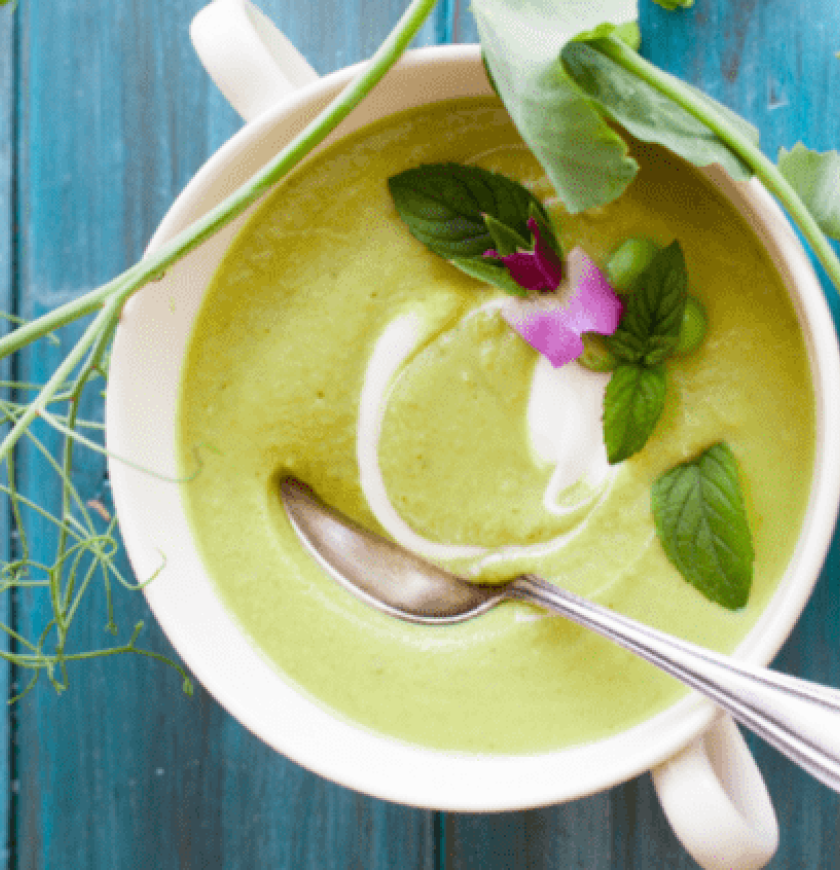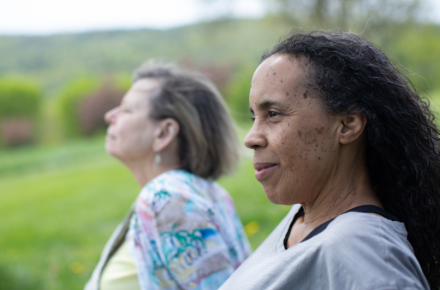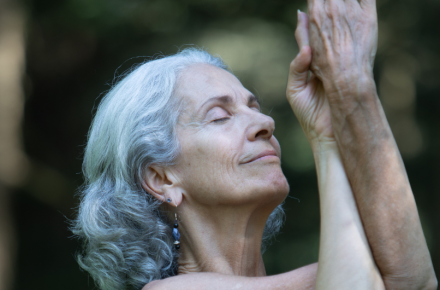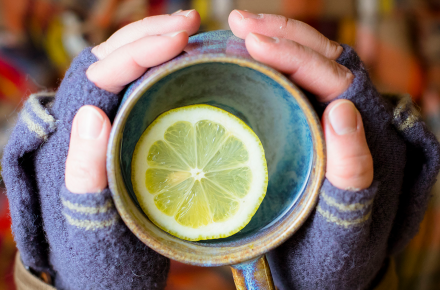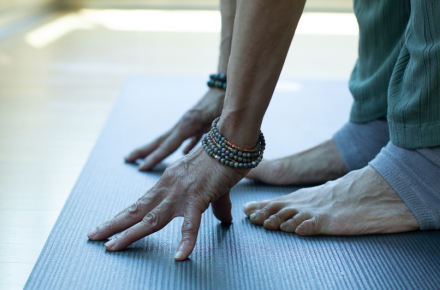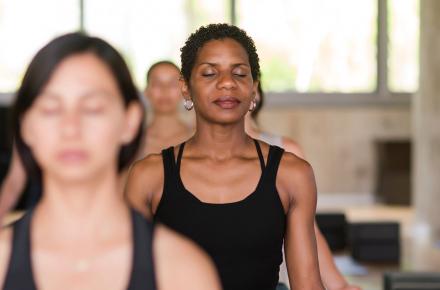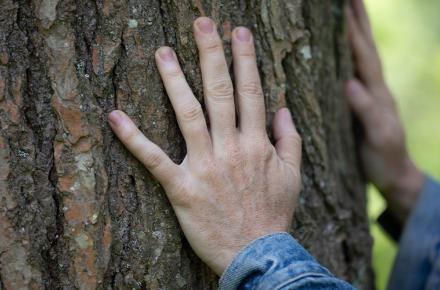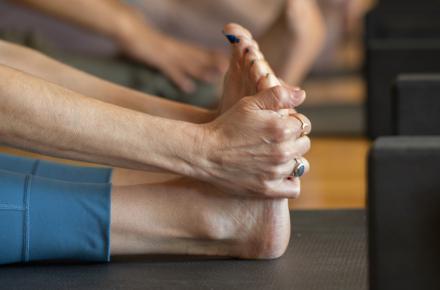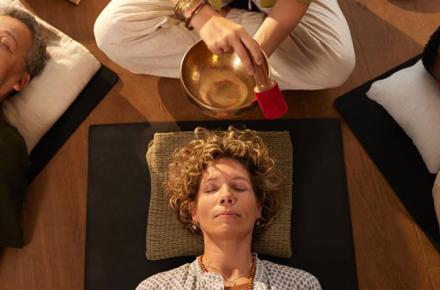Seven Ayurvedic Tips to Keep Spring Allergies at Bay


It’s that time of year again … Seasonal allergies have made their dreaded appearance, and this year, they're worse than ever. According to Ayurveda, spring is governed by kapha dosha and is comprised of the elements earth and water. And, if you combine earth and water, you inevitably end up with thick, heavy, goopy mud.
Kapha dosha takes on these mud-like qualities: It is thick, cold, heavy, sticky, oily, cloudy, and slow moving. This is the time of the year when you see an increase in kaphic qualities throughout your body. Your digestion might feel a bit sluggish and lethargic, you might have an excess amount of mucus, you may experience some weight gain or water retention, and you may even be a bit depressed.
Ayurveda to the rescue! When we change our eating and lifestyle habits to reflect the season, we can combat allergy symptoms as soon or sometimes before they arise.
Follow the tips below to help pacify kapha dosha and ease your way into spring.
Wake before sunrise. Similar to the way each dosha rules a season, they also govern different times of the day. Kapha rules from 6:00–10:00 am and 6:00–10:00 pm. If you sleep into the kapha time of day, you’ll often wake up feeling foggy, heavy, and puffy, as you begin to take on more of those aforementioned kaphic qualities. To pacify kapha, rise before the sun, when the day is more ethereal and subtle.This is the time when the rest of the world is beginning to stir, birds are chirping, the dog is scratching at the door to be let out. If we are living in harmony with nature, we too will wake before the sun. Experiment with this and see if you feel lighter, and check in with yourself on days when you indulge and stay snuggled up in bed past 8:00 am.
Drink warm lemon water. First thing in the morning, boil yourself some water and add a squeeze of fresh organic lemon juice. Drinking warm water in the morning provides a gentle flush for the whole system while also stimulating peristalsis. The hot water is purifying to the stomach and liver, which in turn stimulates the gall bladder and lymphatic system.
Move your body. Get moving between 6:00 and 10:00 am, when the body is at its strongest, to boost your metabolism and shed any sluggishness that accumulated during the night. Go for a brisk walk, do 12 Sun Salutations, dance to “Uptown Funk,” whatever lights you up.
Favor bitter, pungent and astringent tastes. Add spices like ginger, black pepper, garlic, fenugreek, and cayenne to your food. Eat what nature is providing this season: sprouts and bitter, leafy greens such as arugula, dandelion greens, mustard greens, spinach, and watercress. Decrease your intake of mucus-producing foods, such as wheat, meat, dairy, and sugar, as they will exacerbate kapha conditions, creating stagnation and possibly even inflammation.
Invigorate your skin. Do a vigorous self-massage and dry brushing in the morning to help encourage the movement of lymph. Follow this with a light application of sesame oil, which is heating—perfect for cold kapha dosha. If you want to go big, you can also do a self-oil massage with mustard seed oil, a great way to melt toxic sludge. Step into a warm shower to open your pores, so the oil can work its magic.
Use a neti pot with nasya oil. Irrigate your nasal passages with a saline solution and neti pot. This helps to clean out the sinuses of any dirt, pollen, or other allergens. Be sure to apply nasya oil or sesame oil in the nostrils afterward to help lubricate and protect the inside of your nose. If you skip this step, you may find that the saline solution is too drying, and reactive mucus will be produced as a means to remedy the dryness.
Declutter your life. Does your house look like it could be featured on an episode of Hoarders? Spring is an excellent time to get rid of excess stuff that has accumulated throughout your home. Clean out your closet; get rid of old tchotchkes that simply collect dust. By clearing out clutter, you create more space, lightening your living environment as well as your mind.
Find out about trainings in the Kripalu School of Ayurveda.
Lauren Gernady is the Academic Coordinator for the Kripalu School of Ayurveda, and a lifelong student of holistic living. An Ayurvedic Health Counselor and 500-Hour Kripalu Yoga teacher, Lauren explores Ayurveda daily through cooking, writing, and spending time in nature.
© Kripalu Center for Yoga & Health. All rights reserved. To request permission to reprint, please email editor@kripalu.org.




